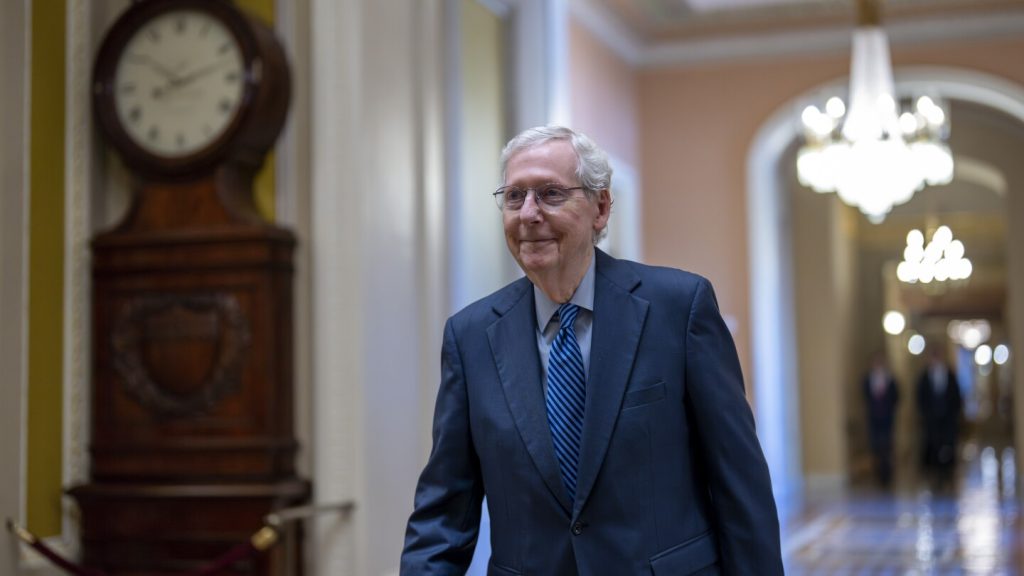Amid the ongoing conflict between Ukraine and Russia, Senate Republican leader Mitch McConnell and House Speaker Mike Johnson have emphasized the importance of providing Ukraine with weapons and aid. Both politicians see this issue through the lens of their earlier experiences with the Cold War, with McConnell’s father warning of the Russians as a threat and Johnson coming of age as the Cold War was ending. They pushed for a $95 billion aid package to support Ukraine, Israel, Taiwan, and humanitarian missions, aligning themselves as “Reagan Republicans” in emphasizing U.S. strength and leadership in the face of Russian aggression. However, the acceptance of this aid within the Republican Party has been influenced by the shadow of former President Donald Trump.
McConnell, a seasoned senator, and Johnson, a newer House speaker, have faced internal pushback within the GOP regarding the decision to support foreign aid. The debate highlights the ongoing struggle within the party, with some conservatives supporting Trump’s “America First” doctrine while others prioritize standing with America’s allies. While McConnell views the aid package as a step in the right direction, he recognizes that the party is still divided on these issues. Johnson, facing threats to his leadership position from right-wing Republicans, has defended his decision to support Ukraine, citing the importance of American leadership in the face of global threats.
Despite the criticism from hard-line conservatives who view the aid package as detrimental to American interests, Johnson and McConnell have garnered praise for their leadership in securing the foreign aid. Senate Majority Leader Chuck Schumer commended their efforts, highlighting their resolve and commitment to American leadership in the world. The negotiation process, initiated by McConnell and Schumer, involved various policy demands and changes to the aid package, ultimately resulting in a bipartisan agreement that prioritized support for Ukraine, among other nations. The influence of Trump on the decision-making process, particularly regarding border security, was a significant factor in shaping the final aid package.
With the aid package successfully passing through Congress and being signed into law by President Joe Biden, the focus now shifts to the future of U.S. involvement in Ukraine and other global conflicts. Republican senators and House members who initially opposed the aid bill were swayed by the revisions made by Johnson, resulting in strong bipartisan support in the Senate. While the aid is expected to help Ukraine in the short term, ongoing assistance will likely be needed as the conflict with Russia continues. Despite the challenges faced in securing the aid package, the potential long-term implications for U.S. foreign policy remain uncertain, with the impact of Trump’s influence on the Republican Party looming large.


